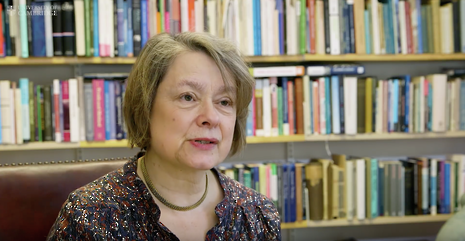Review – This is Going to Hurt
Sofia Weiss reviews these not-so-secret diaries of a junior doctor, finding cause both for laughter and reflection

In 2010, after six years of medical school and a further six navigating the wards, Adam Kay hung up his stethoscope for good. This Is Going to Hurt is the excruciatingly humorous and tragic memoir of how Kay begun at A and crashed out at B.
This is an important book. It brings us, the public, who are used to healthcare from the perspective of potential patients - as Sontag reminds us, we all have a passport into the land of the sick – behind the steely doors of the OR, and even into the minds of those, who in choosing to care for this country’s most vulnerable, sacrifice much of themselves. To do so, Kay poignantly depicts the emotional challenges of a profession inevitably shadowed by the sceptre, yet magnified under a healthcare system walking the tightrope of implosion.
It is perhaps this latter point that renders the book a novelty. Medics are used to tragedy, and as particularly insightful teacher once told us, “if, as medics, you’re looking to stave off death – well, I’m afraid to tell you that ultimately, you’re going to have a 100% fail rate”; however, Kay shows that it is this tragedy, as amplified by working weeks regularly longer than 90 hours (“the parking meters outside the hospital are on a better hourly rate”) and dealing with everything up to extracting remote controls from rectums, that can lead doctors to raise the white flag, and abandon their chosen profession.
Unsurprisingly, Kay mentions pay. Here, his comedy in comparing the wages of £6.60 he earned per hour in his first two years as a Junior Doctor to those of a McDonald’s worker - for reference, this is more than a cashier earns, but less than the branch manager - does not detract from the shock of the calculation. All workers are, of course, important, but in this context it is hard to justify Jeremy Hunt’s vilification of doctors as greedy and ‘in it for the money’. They’re in it to help people, to save lives where they can; if this weren’t the case, they’d find a better paid job at an investment bank. It’s quite simple.
Kay himself has highlighted this theme as an aim of the book. In an interview with Psychologies, he stated: “I can reach members of the public, and the next time doctors come under attack, [they] will think: ‘yes, that’s nonsense.’ And reach the public he has: his diaries have been voted the nation’s favourite book of the year, seeing off competition from giants such as 2017 Man Booker Prize winner Lincoln in the Bardo.
So, the book is a bestseller and well-accepted success – but why should you read it? As a medical student, I appreciated the staunch, often painful reality of the profession I will one day enter that it depicted; for those of my ilk, I recommend it as a critical addendum to our textbook education. This book is not, however, just for medics. It starts a conversation about the NHS that we all, as citizens of this country – let alone taxpayers, now or later – should be interested in, and engage with. It eloquently shows the conditions contemporary doctors work in, such that we might have more knowledge of and sympathy for professionals when next waiting in the four-hour queue at A&E; simultaneously, it does not discourage us from seeking, demanding even, better healthcare for current ourselves and for future generations.
Even if its political prescriptions and doses of traumatic experience seem daunting, this book is well-worth reading for being laced with humour. My own favourite line has to be (with reference to sneaking sleep in the hospital): “I’d have accepted a bed with a grand piano dangling from the ceiling above it by a single pube if there was any chance of some shuteye.” I laughed out loud on the train, and people looked at me curiously; I told them to read the book.
 Music / The pipes are calling: the life of a Cambridge Organ Scholar25 April 2025
Music / The pipes are calling: the life of a Cambridge Organ Scholar25 April 2025 Arts / Plays and playing truant: Stephen Fry’s Cambridge25 April 2025
Arts / Plays and playing truant: Stephen Fry’s Cambridge25 April 2025 Comment / Cambridge builds up the housing crisis25 April 2025
Comment / Cambridge builds up the housing crisis25 April 2025 Interviews / Dr Ally Louks on going viral for all the wrong reasons25 April 2025
Interviews / Dr Ally Louks on going viral for all the wrong reasons25 April 2025 News / Candidates clash over Chancellorship25 April 2025
News / Candidates clash over Chancellorship25 April 2025






